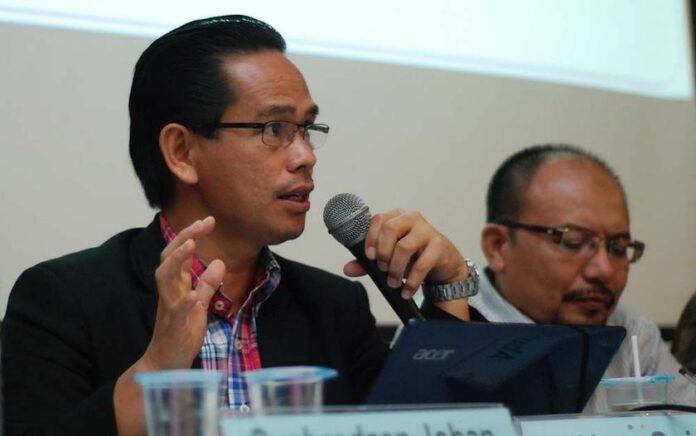
Subscribe to our Telegram channel for the latest updates on news you need to know.
KUCHING, March 10 — A lawyer, who was responsible for bringing Sarawakian Bumiputera Christian Jill Ireland Lawrence Bill’s case to court, today said he felt relieved with the ruling by the High Court that the Malaysian government’s directive issued in 1986 for a total ban on the use of the word “Allah” in Christian publications is unconstitutional and invalid.
Abun Sui Anyit, however, said the court’s ruling is not about winning or losing, but about all Malaysians being able to live and enjoy equal rights on freedom of religion under the law.
“I am responsible for bringing this matter to court in the initial stage when I was practicing in High Court Malaya in 2008.
“At the same time, I was also the leader of a SIB KL (BM) at the material time where Jill Ireland was our church member,” he told Malay Mail in a response to the High Court’s ruling delivered earlier today.
Abun, who is also the state PKR information chief, said he then invited lawyers Annou Xavier and Lim Heng Seng to proceed with the case as he was back for good and practicing law in Sarawak.
He said that he hoped the government would respect the ruling by not appealing.
“As Malaysians, usage of the ‘Allah’ word should not be an issue in Malaysia,” he said, adding that Christians in Sarawak have used the term even before the formation of Malaysia.
“For a harmonious Malaysia, we should not have exclusive right over certain words.
“As a multi-religious and multi-ethnic country, we should not waste time on differences over religious matters, but focus on respecting the differences,” Abun said.
Earlier today, the Kuala Lumpur High Court ruled that the Malaysian government’s directive issued in 1986 with a total ban on the use of the word “Allah” in Christian publications is unconstitutional and invalid, and also declared orders to affirm Sarawakian Bumiputera Christian Jill Ireland Lawrence Bill’s right to not be discriminated against and practise her faith.
Justice Datuk Nor Bee Ariffin, who has since been elevated to be a Court of Appeal judge, granted three of the specific constitutional reliefs sought by the Sarawakian native of the Melanau tribe.
The three orders granted by the judge include a declaration that it is Jill Ireland’s constitutional right under the Federal Constitution’s Article 3, 8, 11 and 12 to import the publications in exercise of her rights to practise religion and right to education.
The other two declarations granted by the judge today are that a declaration under Article 8 that Jill Ireland is guaranteed equality of all persons before the law and is protected from discrimination against citizens on the grounds of religion in the administration of the law ― specifically the Printing Presses and Publications Act 1984 and Customs Act 1967), and a declaration that government directive issued by the Home Ministry’s publication control’s division via a circular dated December 5, 1986 is unlawful and unconstitutional.
The order today means that the government’s long-standing absolute ban in the 1986 circular on the use of the word “Allah” in Christian publications in Malaysia has been declared invalid by the court.
The Bahasa Malaysia-speaking Jill Ireland filed her lawsuit almost 13 years ago after the Home Ministry seized eight educational compact discs (CDs) containing the word “Allah” meant for her personal use at the Sepang LCCT airport upon her return from Indonesia.
Following the May 11, 2008 seizure, Jill Ireland filed for judicial review in August the same year against the home minister and the government of Malaysia.
The High Court had in July 2014 ruled that the Home Ministry was wrong to seize the CDs and ordered that they be returned but did not address the constitutional points then.
Jill Ireland finally received her CDs in September 2015, months after the Court of Appeal had in June 2015 directed the Home Ministry to do so.
At the same time, the Court of Appeal in June 2015 sent two constitutional issues back to the High Court to be heard, namely a declaration that it is her constitutional right under the Federal Constitution’s Article 11 to import the publications in exercise of her rights to practice religion and right to education, and a declaration under Article 8 that she is guaranteed equality of all persons before the law and is protected from discrimination against citizens on the grounds of religion in the administration of the law ― specifically the Printing Presses and Publications Act 1984 and Customs Act 1967).
The High Court later heard the constitutional issues over two days in October and November 2017, but the decision which was initially scheduled to be delivered in March 2018 has been deferred several times over the years, due to various reasons such as both sides seeking resolution outside the court and also the movement control order.


